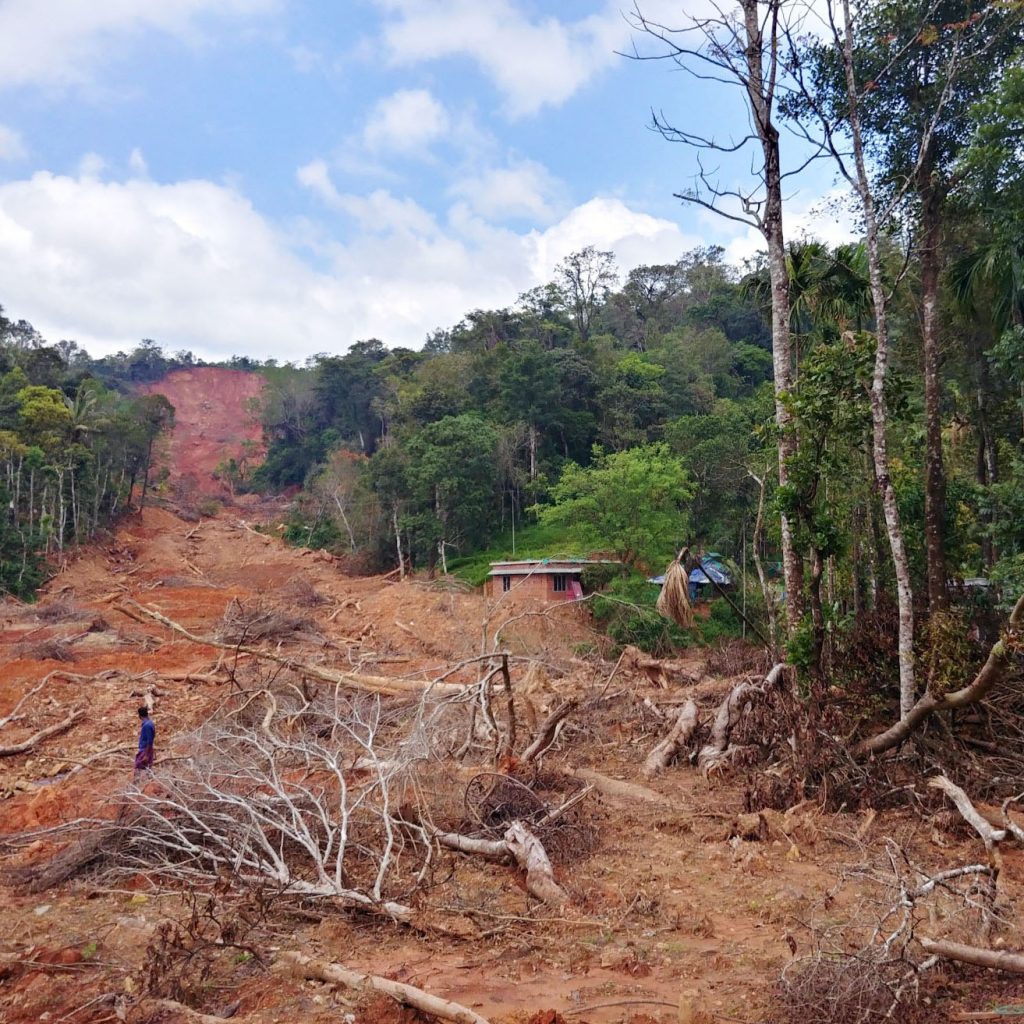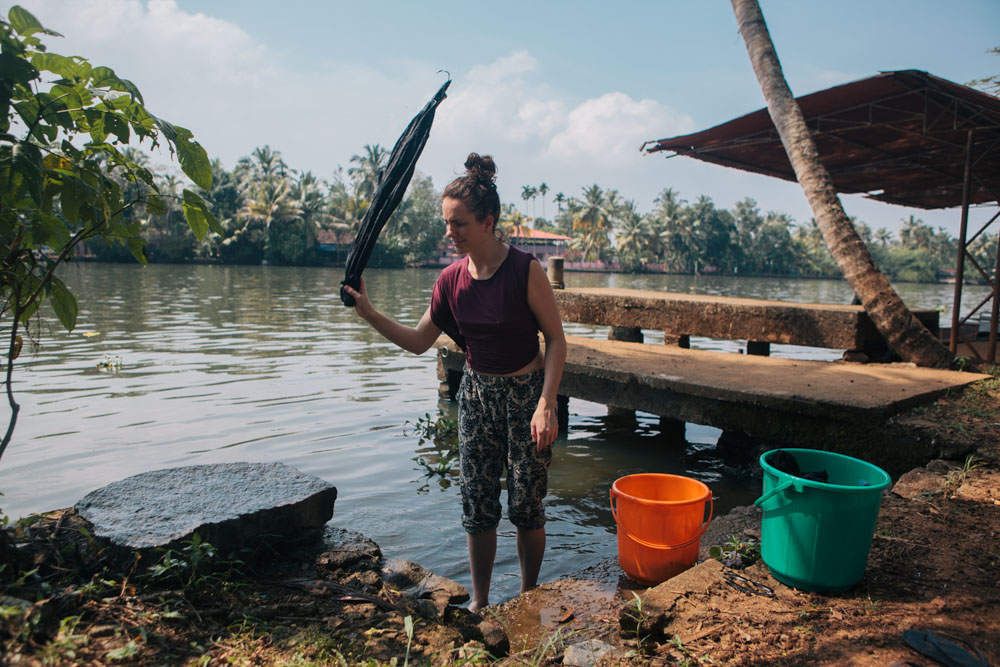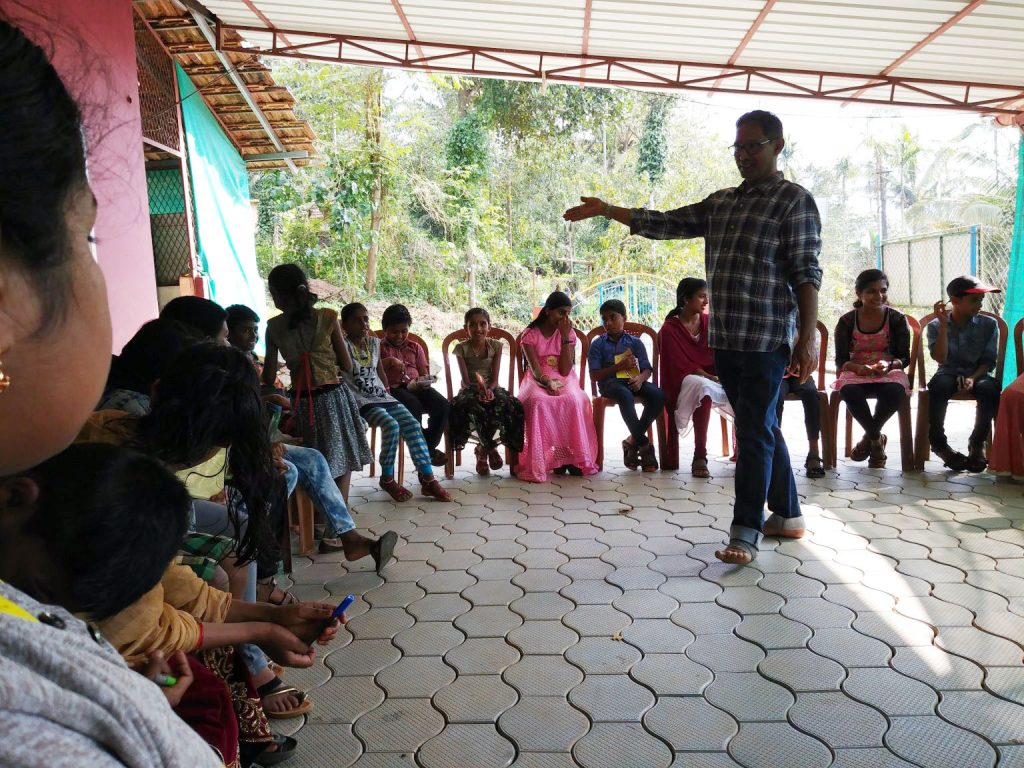Visiting a Post-Landslide Community
As some of you may know, between August 16 and August 30,  Kerala was hit with the worst flood the area has seen in over a hundred years. What is very unfortunate about the whole thing is that some of it was not preventable and some of it was. See, 5 meters of rain fell in just about 10 days here in Wayanad where I am. That’s over 16 feet of water in about 10 days. The dam operators, meanwhile, hesitated to release their rainwater until it was absolutely necessary. As a result, too much water was released at one time and this further exacerbated the flooding in the area. Over 400 people died and at one point over 1 million people were relief camps receiving emergency rations.
Kerala was hit with the worst flood the area has seen in over a hundred years. What is very unfortunate about the whole thing is that some of it was not preventable and some of it was. See, 5 meters of rain fell in just about 10 days here in Wayanad where I am. That’s over 16 feet of water in about 10 days. The dam operators, meanwhile, hesitated to release their rainwater until it was absolutely necessary. As a result, too much water was released at one time and this further exacerbated the flooding in the area. Over 400 people died and at one point over 1 million people were relief camps receiving emergency rations.
Cognizant of all of this before I came here, I knew nothing of the personal impact that I would witness while I conducted a post-impact study as part of my work here. Fortunately, I was able to visit the site of a landslide that wiped out a number of homes and banana crops, talking to survivors and learning what life is like now. Meeting with someone who literally lost everything because of something completely out of his control was a very humbling experience in so many ways. It reaffirmed how much I take for granted on a daily basis. The other thing, however, was how much people who never met the man were so willing to help him with time and money, no questions asked. The amount of support made me feel so hopeful of humanity and our ability to come together and make the world a better place. I digress.
Laundry is Hard Work
I knew I came from a privileged place when every time I asked where I could buy detergent for doing laundry, I was told “No Bryan. There are no washing machines here in town.” I am well aware of this well-intentioned civilian. I had no desire to use a machine, I just wanted to buy soap so I could hand wash my clothes. I was resolved to learn to handwash clothes. A valuable life skill, perhaps. More than anything, however, was the realization that there was no other way to keep my clothes clean. A few days ago, I ran out of clean clothes and was forced to once again broach the topic. After getting a bucket and soap, I wandered into the laundry area of the apartment complex, a section with about 10 clotheslines and two stone slabs specifically designed for slapping clothes on. Neentha saw me pull my clothes out of the hamper and asked if I needed help with washing. As I had never washed my clothes like this before, I graciously accepted, and soon she showed me the process of putting soap in water, scrubbing the clothes with a brush and slapping them on the stone repeatedly. Apparently, this helped to spread the soap through the clothing and clean them more thoroughly. The only problem was at this point, I had two weeks’ worth of clothing to clean, and because of the humidity in the region of Kerala, it takes about 3 full days of air drying to fully dry clothing. Having no idea this was the case I was forced to re-wear clothes for a nice and stinky couple of days before finally figuring the clothes thing out. Not wanting to repeat the mistake, I have started to wash clothes every three to four days. Gotta keep it fresh.
I am well aware of this well-intentioned civilian. I had no desire to use a machine, I just wanted to buy soap so I could hand wash my clothes. I was resolved to learn to handwash clothes. A valuable life skill, perhaps. More than anything, however, was the realization that there was no other way to keep my clothes clean. A few days ago, I ran out of clean clothes and was forced to once again broach the topic. After getting a bucket and soap, I wandered into the laundry area of the apartment complex, a section with about 10 clotheslines and two stone slabs specifically designed for slapping clothes on. Neentha saw me pull my clothes out of the hamper and asked if I needed help with washing. As I had never washed my clothes like this before, I graciously accepted, and soon she showed me the process of putting soap in water, scrubbing the clothes with a brush and slapping them on the stone repeatedly. Apparently, this helped to spread the soap through the clothing and clean them more thoroughly. The only problem was at this point, I had two weeks’ worth of clothing to clean, and because of the humidity in the region of Kerala, it takes about 3 full days of air drying to fully dry clothing. Having no idea this was the case I was forced to re-wear clothes for a nice and stinky couple of days before finally figuring the clothes thing out. Not wanting to repeat the mistake, I have started to wash clothes every three to four days. Gotta keep it fresh.
Teaching English in a New Country
English is not really something I ever really considered needing to prepare to teach.  Granted I have had the chance to teach it in Spain, Guatemala, Haiti, and Costa Rica, and these experiences have given me recourse to believe that teaching in India would be no different. HA!!! Bryan is dumb. Teaching in India is a different challenge altogether, primarily because I don’t know the language here, but also because we are attempting to redesign a brand-new curriculum. This curriculum is intended to combine a sense of being a global citizen with the necessary English skills necessary for getting a job in the 21st century. Sounds fun right? The greatest blessing and curse is actually working with the kids in class. They range from preschool to 9th grade, so the age gap is a challenge to start with. This makes it tough to keep their attention on the subject at hand. Would love comments and suggestions on how to improve maintaining attention in class but we are still working on ways to do just that.
Granted I have had the chance to teach it in Spain, Guatemala, Haiti, and Costa Rica, and these experiences have given me recourse to believe that teaching in India would be no different. HA!!! Bryan is dumb. Teaching in India is a different challenge altogether, primarily because I don’t know the language here, but also because we are attempting to redesign a brand-new curriculum. This curriculum is intended to combine a sense of being a global citizen with the necessary English skills necessary for getting a job in the 21st century. Sounds fun right? The greatest blessing and curse is actually working with the kids in class. They range from preschool to 9th grade, so the age gap is a challenge to start with. This makes it tough to keep their attention on the subject at hand. Would love comments and suggestions on how to improve maintaining attention in class but we are still working on ways to do just that.
The whole process is super rewarding though. Why? Because if these kids stick with it, if they keep asking questions and working hard, they will gain the necessary skills to be successful. A few weeks ago, one girl, upon hearing that I majored in Civil and Environmental Engineering, proceeded to ask if it is possible to design manmade structures, which are inherently bad for the environment, to be conscientious of the environment in a meaningful way. She had never heard of a Civil Engineer that designs with the environment in mind. This concept, foreign to most Indian engineers, was fascinating to her and gave her a new career interest. These connections are what I am looking for, what I am hoping to learn from teaching English. It is so much more than just the language.

Leave a Reply
You must be logged in to post a comment.